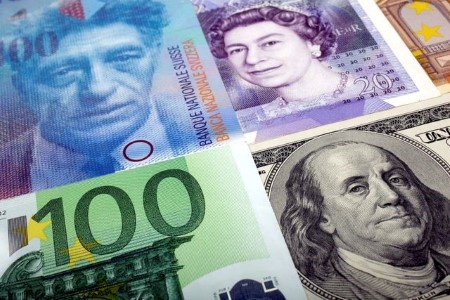




January Economic Update: Growth slows, prices rise
 DOWNLOAD
DOWNLOAD

Inflation Update: Up, up, and away?
 DOWNLOAD
DOWNLOAD

Quarterly Economic Growth Release: Growth takes on a slower pace
 DOWNLOAD
DOWNLOAD


Dollar rally fizzles as traders reassess risks from Poland

TOKYO, Nov 16 (Reuters) – The safe-haven US dollar’s early gains fizzled following volatile trading on Wednesday as traders took comfort from US President Joe Biden’s remarks that a missile that caused a explosion in Poland may not have been fired from Russia.
NATO-member Poland and Ukraine say the blast that killed two in a town close to their border was caused by a Russian-made rocket, raising concerns of an escalation in the war. However, Biden said the weapon was probably not fired by Russia, although the investigation was ongoing.
According to US officials, initial findings suggested that the missile that hit Poland had been fired by Ukrainian forces at an incoming Russian missile, the Associated Press said.
Russia denies it was responsible for the explosion.
“The market is trying to size up the risk and what that really means,” said Moh Siong Sim, currency strategist at Bank of Singapore. “Is that something that is going to lead to further tension or perhaps this is something that will deescalate over the next few days.”
“Right now, it’s a bit of a tussle in the market as to how to price this risk,” he added.
Biden was speaking after global leaders held an emergency meeting on Wednesday following the deadly explosions that Ukraine and Polish authorities said were caused by Russian-made missiles.
Turbulent trading during the Asian session saw major currencies swing between gains and losses, with the US dollar index, which measures the greenback against six peers and weights the euro most heavily, rising as much as 0.31% to 106.76 before last trading 0.05% lower at 106.38.
The euro was up 0.127% at USD 1.0377, having slipped 0.18% earlier. The currency saw similar moves overnight.
Sterling was last trading at USD 1.1875, up 0.06% after reversing its losses from earlier in the day.
The Japanese yen was about 0.3% weaker at 139.75 per dollar, influenced by a rise in US long-term Treasury yields during Tokyo trading as haven demand eased. Bond yields move inversely to prices.
Risk-sensitive Antipodean currencies recovered from earlier declines with Australian dollar last up 0.19% at USD 0.67685, while the kiwi was flat at USD 0.6158.
“The currency market is stabilising, toying with the notion that this … doesn’t necessarily imply an escalation in the war, with NATO needing to get involved,” said Rodrigo Catril, a senior currency strategist at National Australia Bank.
Resiliency in the Aussie and New Zealand dollars despite the swings in risk sentiment shows “there is a lot of appetite to push the US dollar lower,” Catril said.
(Reporting by Kevin Buckland and Ankur Banerjee in Singapore; Editing by Edmund Klamann and Bradley Perrett)
This article originally appeared on reuters.com





 By Reuters
By Reuters